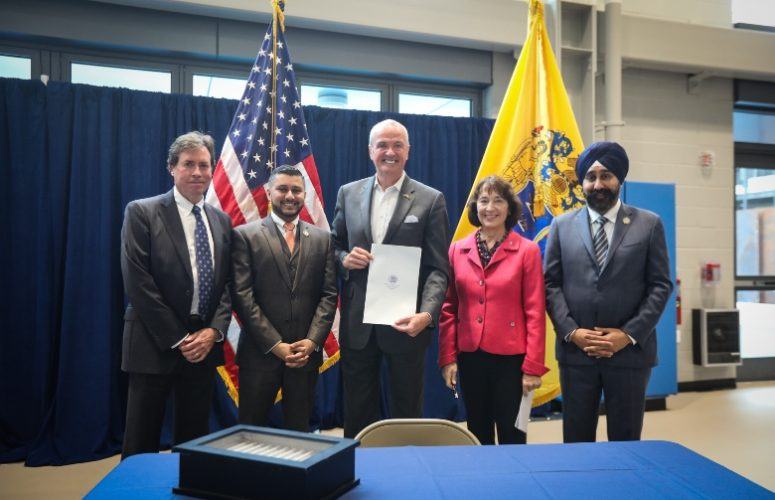
Executive Order Aims to Better Position NJ for Impact of Climate Change
By Jim Pytell, Assistant Editor On Oct 29, 2019Gov. Phil Murphy signed an executive order today which aims to monitor and address the impact and dangers of climate change on the state.
Signed on the seventh anniversary of Superstorm Sandy, Executive Order No. 89 will establish a statewide climate change resilience strategy, a Climate and Flood Resilience Program within the Department of Environmental Protection (DEP), and establish an interagency Council on Climate Resilience.
As a coastal state, New Jersey is extremely vulnerable to the impact of sea-level rise.
“Some of the latest climate research tells us that we will see what should have been a ‘100-year storm’ not every 100 years, but instead every 30 years. … New Jersey is ground zero for the negative impacts of climate change,” said Murphy, who added that the state must be a global leader in “pushing back against the reality of climate change.”
Assistant DEP Commissioner David Rosenblatt will serve as the chief resilience officer and will be tasked with leading the Climate and Flood Resilience Program in developing a scientific report on climate change’s effect on New Jersey. The report will be delivered to the governor within 180 days and updated at least every two years.
“We face many challenges from increasing temperature and sea-level rise,” said Rosenblatt. “To meet those challenges, we need to fully engage the public and stakeholders and provide a clear picture of what the impacts will be, including physical changes to our coastline, and the steps that have to be taken to adapt and become more resilient.”
The Interagency Council on Climate Resilience will be comprised of representatives of 16 state agencies to develop short- and long-term action plans to develop a resilience strategy that will promote the long-term mitigation, adaptation and resilience of New Jersey’s economy, communities, infrastructure and natural resources in the face of climate change.
By September 1, 2020, the strategy will be delivered to Governor Murphy.
It will include recommendations for actions New Jersey should take to mitigate and adapt to the effects of climate change, including but not limited to:
- Identify methods that can be used to strengthen resilience
- Provide guidance and strategies for state agencies, municipalities, and regional planning agencies to implement resiliency measures
- Promote long-term water and energy resource security
- Reduce the risk of wildfires in state forests
- Reduce the risks to the health of New Jersey residents that accompany climate change, such as increased vulnerability to extreme temperatures
- Support sustainable and resilient economic development
- Identify funding mechanisms, strategies, and opportunities for coordination
- Any other measures necessary to prepare for, mitigate, and adapt to the impacts of climate change
The strategy will also include a Coastal Resilience Plan that recommends a specific long-term strategy for climate change resilience and adaptation in the coastal areas of the state.
To access more business news, visit NJB News Now.
Related Articles:





